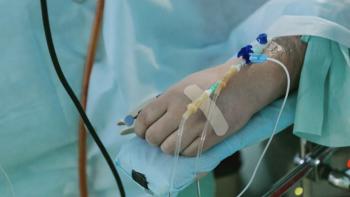Less than 400cc of urine per day, suspected acute renal failure...In severe cases, comatose conditions
Apr 15, 2025
|
Acute renal failure is a condition in which kidney function declines rapidly within hours and days for several reasons.
Professor Kim Jin-guk of the Department of Nephrology at Soonchunhyang University Bucheon Hospital explained, "If the kidneys fail to function properly, high nitrogenemia occurs due to the inability to effectively filter out nitrogen waste in the body, and nausea, vomiting, loss of appetite, swelling, blood pressure rise, and shortness of breath can occur in addition to oliguria, which reduces urine volume due to a broken balance between body fluids and electrolytes. In severe cases, it can lead to coma."
According to domestic statistics, 5-15% of hospitalized patients experience acute renal failure, and up to 30%-50% of intensive care unit inpatients have been reported. Patients undergoing heart surgery have a low incidence of 19%, and nose or ear surgery has a low incidence of 4%. As such, acute renal failure shows various patterns depending on society, population composition, and clinical situation.
Approximately 50% of patients with acute renal failure develop oliguria, which decreases daily urine volume to less than 400 cc. Nepithelial renal failure, in which urine volume is maintained to some extent, may also occur. Other physical symptoms include nausea, vomiting, loss of appetite, swelling, rising blood pressure, dyspnea due to arrhythmia, pulmonary edema, nervousness, hand tremors, convulsions, and confusion of consciousness. Severe cases can lead to coma.
There are three main causes of acute renal failure: extensibility, divinity, and nephropathy. The cause of extensibility is caused by a decrease in the amount of blood supplied to the kidneys. Severe dehydration due to vomiting, diarrhea, and fever is a common cause, and it may also occur due to decreased renal blood flow due to bleeding, heart failure, cirrhosis, sepsis, etc. Sacred causes are caused by kidney diseases such as glomerular disease, tubular disease, interstitial disease, and renal vascular disease. The last nephropathic cause is that urine discharge is not smooth due to urinary stones or tumors.
Risk factors include hypotension, congestive heart failure, sepsis, diabetes, nephrotoxic drugs or plants, contrast agents, severe dehydration, old age, shock, burns, severe disease, and rhabdomyolysis. In particular, the risk of occurrence is higher in cases of chronic kidney, heart, liver, and lung diseases, diabetics, heart surgery, and the elderly.
To diagnose acute renal failure, uremic levels such as creatinine and urea nitrogen should be measured through blood tests. In general, it is diagnosed when serum creatinine increases by more than 50% of the reference value within 7 days, increases by 0.3mg/dL or more within 48 hours, or when the urine volume decreases to less than 0.5ml/kg/h for more than 6 hours. Blood tests, urine tests, and ultrasound tests are performed to identify a more accurate cause, and kidney biopsy can also be performed if necessary.
Treatment is key to correcting the cause of acute renal failure and preventing further renal damage. Moisture control, electrolyte balance, acid-base balance, and proper nutrition are important for symptom relief. Hemodialysis treatment may be required if uremic symptoms, hyperkalemia, metabolic acidosis, or excess fluid such as pulmonary edema is severe. In particular, it is important to prevent dehydration as urine volume increases suddenly during the recovery period and diuretic symptoms often occur.
In order to prevent acute renal failure, it is important to prevent dehydration with sufficient water intake if there is no swelling in the body. Eating proper salt and protein and refraining from eating processed foods are helpful as a diet. In addition, drugs or health functional foods that may be burdensome to the kidneys should be avoided as much as possible and consulted with medical staff. In addition, health promotion through regular exercise is also helpful.
Professor Kim Jin-guk said "It is important to visit a medical institution for examination as soon as possible if symptoms of suspected acute renal failure such as apoptosis occur. Acute renal failure can be recovered without dialysis treatment if detected early and can prevent complications, but if left unattended, it can lead to chronic renal failure or serious complications such as pulmonary edema and heart failure."
Then "Maintaining kidney health is a key component of overall health care. Acute renal failure is an unpredictable condition, but correct lifestyle and regular checkups can reduce the risk and prevent kidney disease," he said.
|
This article was translated by Naver AI translator.















